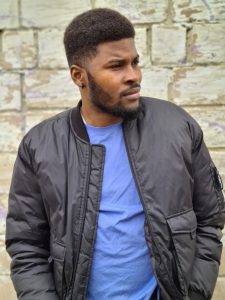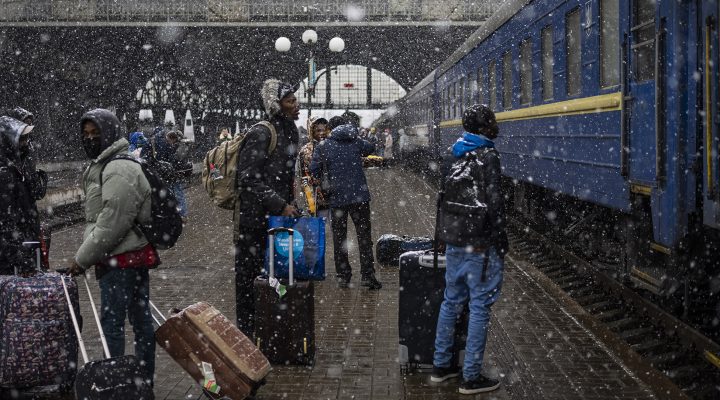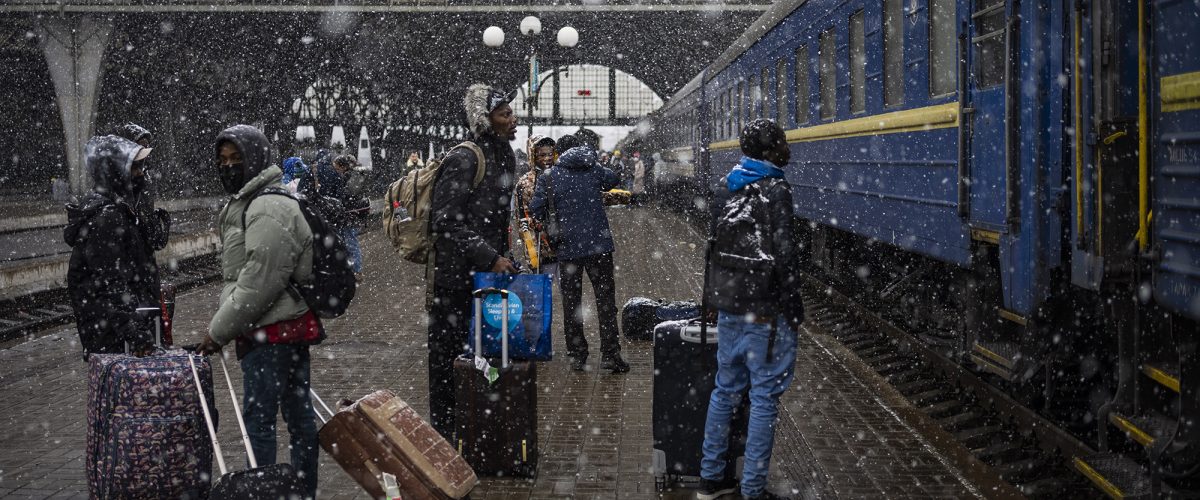In the last six months of his sojourn abroad as a medical student, Maurice Nwokejiezi has, on at least two occasions, come up against forces determined to thwart his ambition.
The first was in Ukraine where in February, as a final year student at Vinnitsa National Pirogov Memorial Medical University looking to write his exam, he suddenly, hurriedly, like millions of others in the Eastern European country, packed his belongings and fled after Russian forces, on the orders of Vladmir Putin, invaded and unleashed war on the country.
Nwokejiezi was lucky to escape to Germany along with some other African students. But unlike some of his colleagues currently stranded and searching to transfer and continue their education in institutions in Europe and elsewhere, Nwokejiezi proceeded with his online at his Ukrainian university. The university, like many others in Ukraine, offered its displaced students the opportunity to continue and complete their studies online pending normalcy returning to the country.

Maurice Nwokejiezi
Nwokejiezi was one of the lucky ones who recently wrote his final exam and plans to graduate from the university. But now he has learned that his degree will not be recognized by the Medical and Dental Council of Nigeria, the agency that regulates medical practice in the West African country. Notice to that effect is seen on the website of the council: “Medical and dental degree certificates issued by medical schools from Ukraine from 2022 will NOT be honoured by the Medical and Dental Council of Nigeria until normal academic activities resume.”
Instead, the council advises students currently studying medicine or dentistry in Ukrainian schools to transfer to other accredited schools in other countries. “For the avoidance of doubt, council categorically states that online medical training done in any part of the world is short of acceptable standard and is not recognized by the MDCN,” the statement adds.
Nwokejiezi, like many others in his shoes, was dismayed and saddened by the decision. And while some have condemned the policy as insensitive or inhumane, others say it shows the failure of the Nigerian government and its agency to provide help when needed.
One of those displeased by the decision is Tajudeen Yusuf, a member of the Nigerian Parliament. In a motion he offered in late June, Yusuf said the MDCN’s plan, if allowed to hold, could jeopardize the careers of thousands of Nigerian students who are victims of the Ukraine war. “The MDCN intends to truncate the academic dreams and professional ambitions of thousands of Nigerian medical students in Ukraine as a result of ongoing development that are not caused by them,” the Daily Post quoted Yusuf as saying.
Following Yusuf’s motion, the House of Representatives urged MDCN to “allow students in the sixth (and final) year of their programs, that have completed their final exams, to register for the MDCN in Nigeria and allow them to prove themselves.” Besides that, the House also wants “the MDCN to allow students in the fifth year of their medical programs in Ukraine to be absorbed into medical schools in Nigerian universities to complete their sixth year,” and for the Nigerian federal authorities “to discuss with Ukrainian authorities for universities to release the transcripts of years completed from year one to year six (as applicable) for Nigerian students willing to transfer to medical schools in Nigeria or other nations.”
It remains to be seen how the House motion could change MDCN’s position, but Nwokejiezi told BNG he is happy they waded in — as anything other than that amounts to double jeopardy.
“It will be good if the medical board will accept the medical certificate because you cannot be traumatized twice. We were offline before the war broke out,” he said, adding that as a final year student, he already was looking forward to greater things before the unfortunate event in Ukraine.
“I was looking forward to graduate in Ukraine, create memories with friends and plan for the future. But the war cut everything so fast and short.”
“I was looking forward to graduate in Ukraine, create memories with friends and plan for the future. But the war cut everything so fast and short. It’s so depressing,” he said, noting that while he’s out of danger in Ukraine and now being assisted by some kindhearted fellows and an organization in Germany, he still faces hurdles as the challenges of settling in a new environment are clear.
“It’s not easy to live and plan something so suddenly. It’s not easy to live and learn (a new) language, but I hope for the best.”
Traveling back to his home country is not in his plans at the moment due to the security challenges there. Unless the situation changes, Europe holds better prospects, he believes. But the idea that his country will not recognize his certificate if he chooses to return to practice medicine there someday amazes him.
Cyprian Ogah, a Nigerian doctor now based in the United States, said that while the decision of the agency may have been prompted by the need to preserve standards in the medical field, an arrangement should be worked out to suit both parties.
“Looking at the medical profession, no country as much as I know has approved the use of online programs to complete medical training. The reason is that there are so many practical experiences that one has to fulfill in each of the clinical departments — obstetrics and gynecology, community medicine and surgery — that one cannot accomplish online,” he said.
However, in the current situation, MDCN could work with the Ukrainian medical board to see if it’s possible to absorb Nigerian students in Nigeria and abroad into Nigerian universities, to fulfill the practical aspect of their training, he suggested. That way, the students won’t need to wait until the war ends in Ukraine to return for the practical. He cited as an example some Caribbean medical schools that run online programs for medical students and are affiliated with teaching hospitals in the U.S. which enable the students to gain practical experiences.
For now, this is another hurdle thrown in the path of those who have become refugees from the war in Ukraine. And a barrier to bringing more trained medical personnel to a country that is underserved.
“To the extent that the event in Ukraine and the circumstance that led to it is well known, the order by the Nigerian medical authorities is devoid of sympathy. If such ultimatum were issued by a foreign country, it would still be so in my eyes, and we would be busy talking and accusing them of discrimination and racism,” said Emeka Nwolise, a Lagos-based Nigerian. “To have it issued by Nigeria, a country with a significant student population in Ukraine prior to the war, is sad and unfortunate.”
Anthony Akaeze is a Nigerian-born freelance journalist who currently lives in Houston. He covers Africa for BNG.
Related articles:
Displaced by the war in Ukraine, some African students battle to continue their education in Germany
Black and Asian refugees fleeing Ukraine face additional barriers, discrimination
Nowhere near the war zone, Africans feel the heat of the Russia-Ukraine war in their pocketbooks


